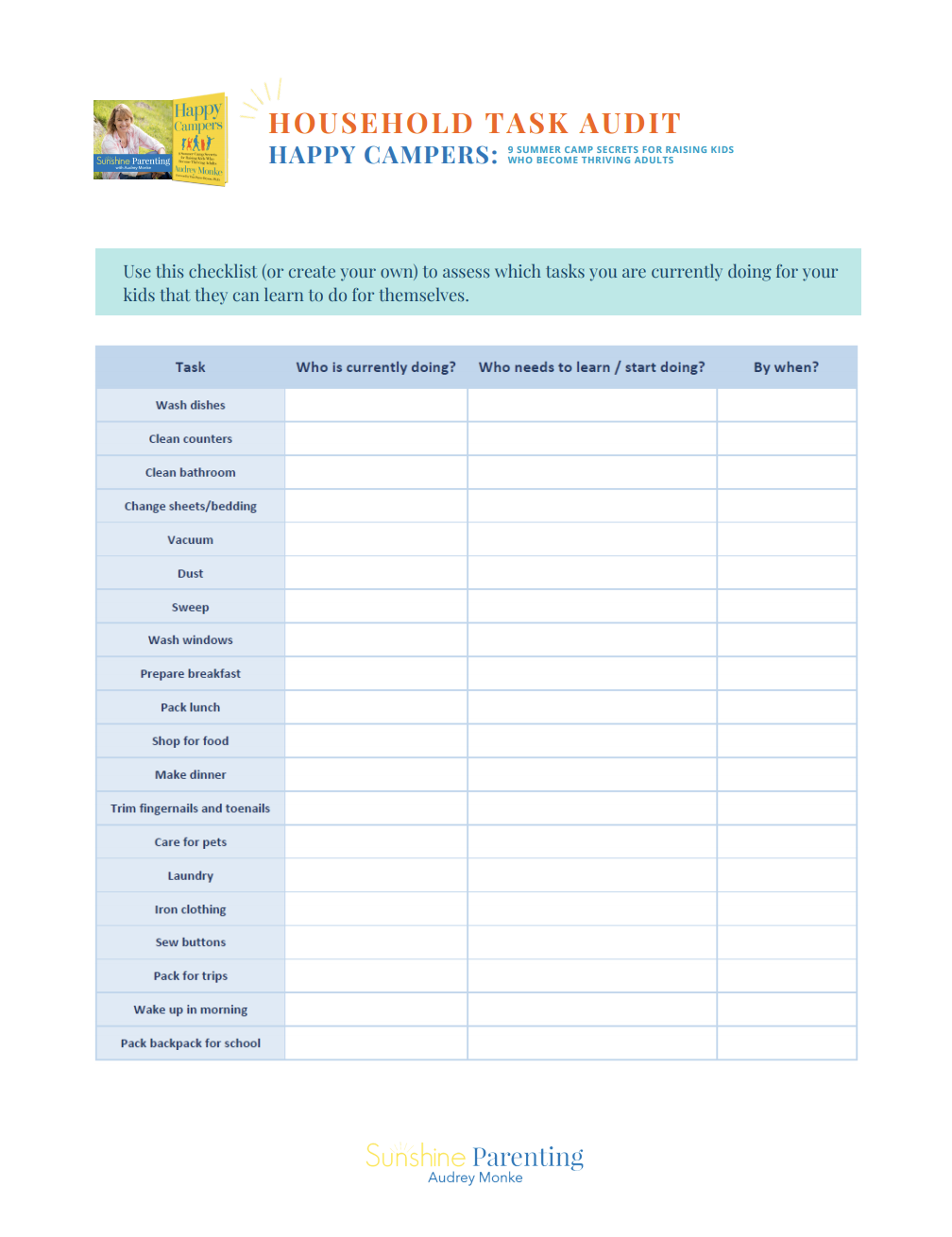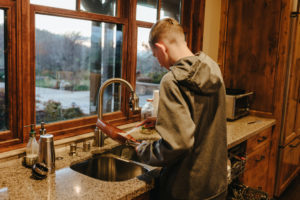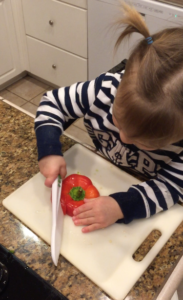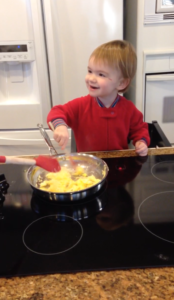
When my husband picked my 13-year-old son up recently from a movie night at a friend’s house, the mom mentioned that he was “great at doing dishes.” To me, this is one of the highest compliments we can get as parents. Over the years, I have repeatedly told my kids that keeping a kitchen clean will make them a better roommate and spouse, and so I’ve given them a lot of practice at home. I also know that being needed and useful fosters a sense of purpose and belonging.
For many kids struggling today with depression, one cause is feeling that they have no purpose and that they don’t matter. Being a contributing member of a household, and understanding the importance of their individual contributions, could be one key to giving them the feeling of meaning and purpose they lack.
When you feel like an integral part of a team, even if it means working really hard, that makes you feel good.

Household Task Audit
Subscribe to my weekly emails, and I'll send you my Household Task Audit to help you figure out what chores your child can start helping with.

Washing Dishes
When we treat our kids as customers to be served at home (or school or camp), they get a sense of being unnecessary appendages in the world. I believe this is especially true of teenagers, who are capable of doing much more than many of them are asked. While their ancestors were working, getting married, and having children during what we now call “emerging adulthood” (ages 18-26), many of this age group are still being taken care of and served by parents who think they’re not ready to take on adult life with its work and challenges. I understand the financial reasons for many emerging adults to live at home, but regardless of the reason, kids and young adults of all ages need to be taking on more and more chores and responsibilities as they mature.
Campers learn to take turns doing chores and accept responsibility for themselves.
At camp, we work together at cabin clean up, campfire building, outdoor cooking, setting up our campsite on backpacking trips, clearing and cleaning our dining table (called “KP” for “kitchen patrol”), and much more. Kids are never sitting idly by, watching counselors do these daily chores. Instead, the kids are working side-by-side, learning the skills they’ll soon need to be able to do these things for themselves.
 We do our kids a huge service by allowing them, from the moment they are even slightly able, to start helping with chores that keep our home running smoothly. I recently watched my friend’s three-year-old stand on a stool and help chop vegetables with a special safe knife. How proud she felt to help prepare dinner! Compare that to the teenager who needs to be pulled from his video game to come to dinner, which has been prepared for him. (This I have experienced personally).
We do our kids a huge service by allowing them, from the moment they are even slightly able, to start helping with chores that keep our home running smoothly. I recently watched my friend’s three-year-old stand on a stool and help chop vegetables with a special safe knife. How proud she felt to help prepare dinner! Compare that to the teenager who needs to be pulled from his video game to come to dinner, which has been prepared for him. (This I have experienced personally).
In How Children Succeed, Paul Tough talks of the resilience some inner-city kids build working hard and overcoming hardship. While the typical eleven-year-old in an economically disadvantaged home is helping care for younger siblings while parents work, the more affluent eleven-year-old counterpart often has a babysitter or parent meeting their every need. That’s one explanation for why, as Madeline Levine explains in The Price of Privilege: How Parental Pressure and Material Advantage Are Creating a Generation of Disconnected and Unhappy Kids, more advantaged children are at more risk for the depression that results from feelings of being purposeless.
 As Julie Lythcott-Haims so well explains in her book How to Raise an Adult: Break Free of the Overparenting Trap and Prepare Your Kid for Success
As Julie Lythcott-Haims so well explains in her book How to Raise an Adult: Break Free of the Overparenting Trap and Prepare Your Kid for Success, giving kids chores is one easy thing parents can do to help children grow into competent adults.
It’s not just that they need to learn the skills chores teach, which is also important. They also need to know that they are a needed and integral part of the family.
My son – the champion dishwasher – was also a bit proud, I believe, of demonstrating his killer kitchen clean-up skills. And I’m proud to be raising a son who knows that he is needed both in our house and in other homes he visits.
Related
Ep. 3: Raising Resilient, Independent Kids
How Camp Helps Parents Raise Adults
If you have 14 minutes, I highly recommend watching Lythcott-Haims’ TED Talk, in which she talks about chores, among other things:
